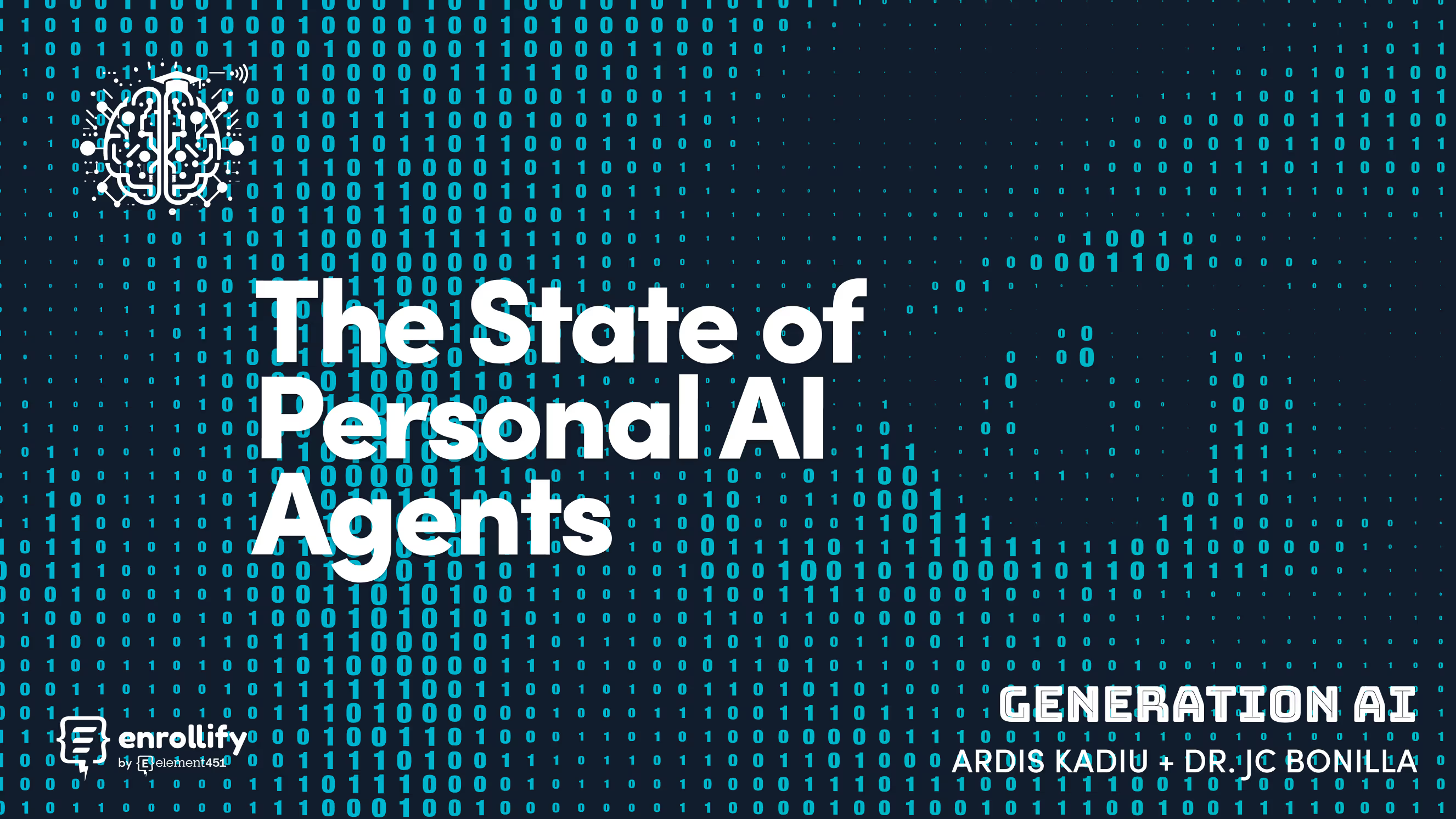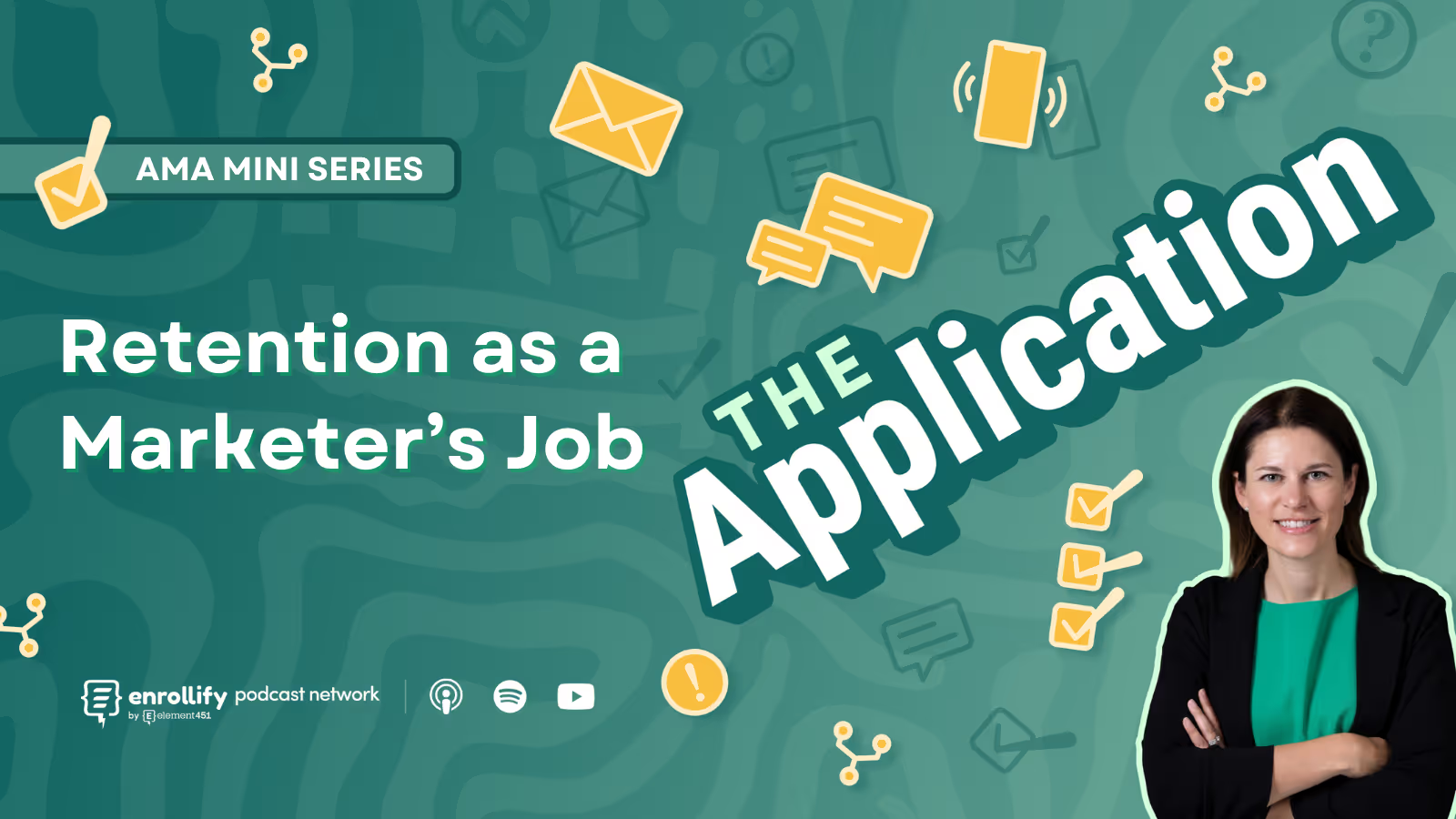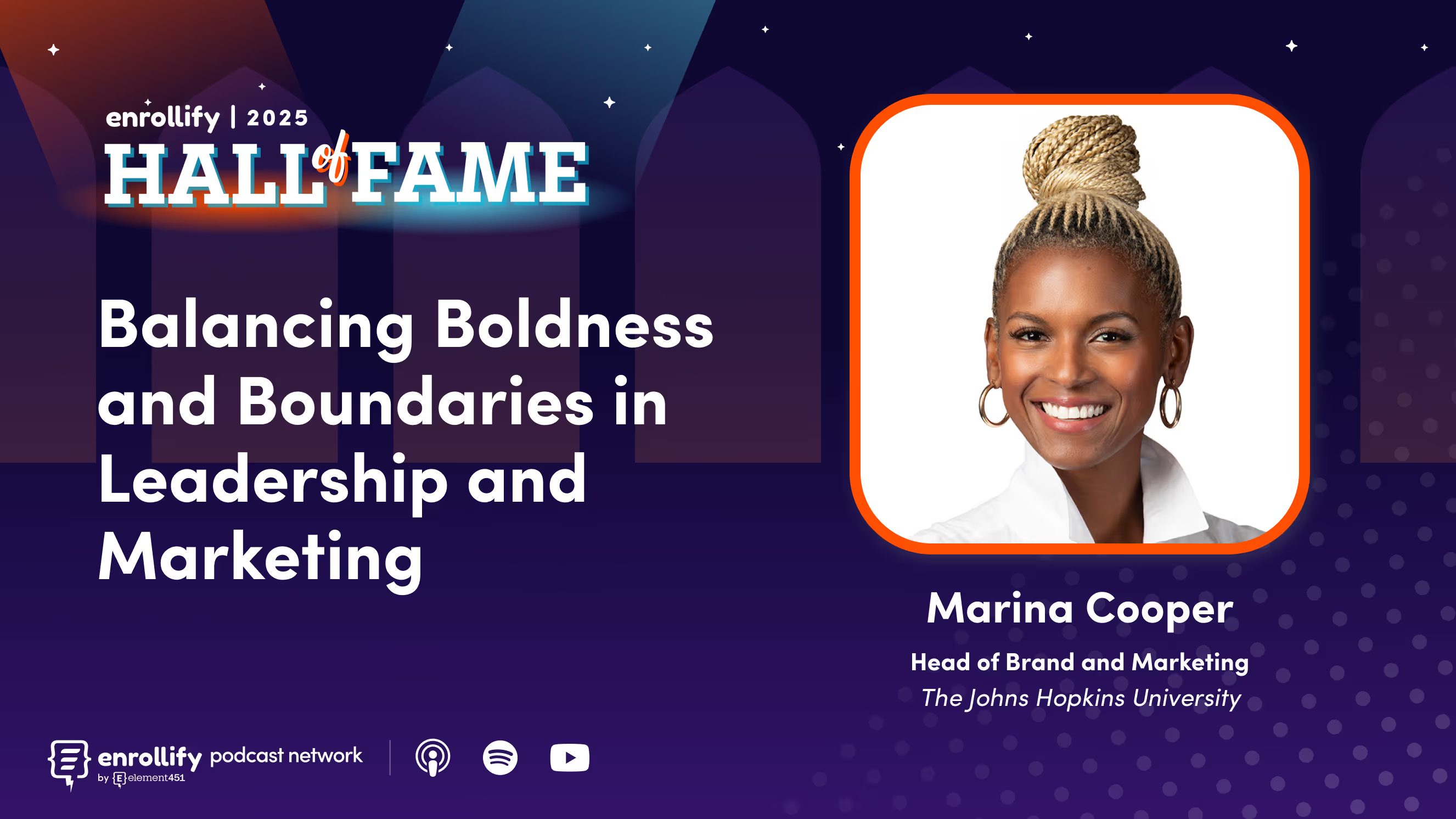About the Episode
About The Episode:
In this episode of Generation AI, hosts JC Bonilla and Ardis Kadiu explore the rapidly evolving landscape of personal AI agents. They analyze four types of agents - general task agents, researcher agents, workflow agents, and code generation agents - before diving into the recent sensation around Manus AI. The hosts discuss how AI agents are shifting from simple task execution to complex autonomous workflows, potentially transforming how work gets done across industries. The conversation highlights a critical turning point where AI can now operate with minimal human supervision, challenging previous assumptions about the "human in the loop" paradigm.
Key Takeaways
- AI agents are evolving beyond task execution into autonomous systems that can complete complex workflows with little human oversight.
- Four main types of AI agents are emerging: general task agents, research agents, workflow agents, and code generation agents.
- Manus AI is making waves, with a $10,000 access fee and a 2-million-person waitlist, signaling massive demand for autonomous personal agents.
- Research agents are transforming decision-making, offering deep, data-backed insights using tools like Perplexity, Claude, and Gemini.
- Workflow automation is advancing rapidly, with tools like Zapier, Make.com, and Lindy.ai integrating AI into complex business processes.
- Code generation agents are redefining software development, with platforms like Cursor, Anthropic Code Agent, and Lovable enabling AI-driven coding.
- The "human in the loop" model is shifting toward "human as supervisor," as AI systems take on more independent tasks.
- The future of work is changing, raising questions about which jobs will remain relevant in an AI-driven landscape.
Exploring the Evolution of AI Agents
AI agents have rapidly evolved from simple task assistants to sophisticated autonomous systems. JC and Ardis trace this progression, highlighting how 2023 saw the emergence of AI agents capable of reasoning, adapting, and executing tasks with minimal input. The hosts emphasize the role of foundational AI models like DeepSeek and Grok 3, which have accelerated AI’s ability to perform complex workflows.
The conversation underscores the shift from large AI models to more specialized AI agents. Instead of relying solely on broad AI capabilities, developers are now building targeted solutions that integrate multiple AI tools into seamless workflows. This trend is making AI more useful in real-world applications, particularly in research, automation, and coding.
As AI development speeds up, the time required for new innovations is shrinking. What once took years to develop is now happening in months. This rapid acceleration is setting the stage for AI agents to become an essential part of everyday work.
The Four Types of Personal AI Agents
General Task Agents: Boosting Productivity
General task agents are designed to help with everyday productivity tasks, such as scheduling, email management, and basic research. These agents act as virtual assistants, handling repetitive tasks so users can focus on higher-value work. Tools like ChatGPT, Claude, and Gemini are commonly used for these functions, with increasing levels of automation being integrated.
The appeal of general task agents lies in their ability to streamline workflows. By automating administrative tasks, these AI tools free up valuable time and reduce cognitive load. This makes them particularly useful for professionals who juggle multiple responsibilities.
While general task agents are effective for simple automation, their true potential emerges when they are combined with more advanced AI systems, such as workflow or research agents.
Research Agents: Transforming Decision-Making
Research agents are revolutionizing how professionals gather and synthesize information. These AI systems, powered by tools like Perplexity, Claude, and Gemini, can conduct deep research, compile data, and generate insights backed by reliable sources.
Ardis shares how research agents have changed his workflow, allowing him to start projects with AI-generated foundational research. Instead of spending hours manually gathering information, he now relies on AI to compile high-quality, referenced insights in minutes.
This shift is making AI an essential tool for market research, content creation, and strategic decision-making. The ability to quickly access and synthesize vast amounts of information is giving users a competitive edge in data-driven industries.
Workflow Agents: Connecting Complex Processes
Workflow agents are designed to orchestrate multi-step processes, automating tasks across different tools and platforms. These agents integrate with automation platforms like Zapier, Make.com, and Relevance.ai, enabling seamless execution of business workflows.
JC and Ardis highlight how workflow agents are changing the way organizations operate. Instead of manually coordinating tasks, companies can now use AI to manage entire workflows, from email automation to customer support.
The most powerful aspect of workflow agents is their ability to mix and match different AI models for optimal performance. By combining multiple AI tools, businesses can create highly customized automation systems tailored to their specific needs.
Code Generation Agents: Redefining Software Development
The rise of code generation agents is accelerating the development of software applications. AI tools like Cursor, Anthropic Code Agent, and Lovable are enabling both technical and non-technical users to build applications more efficiently.
JC and Ardis discuss how AI is expected to write 90% of code in the near future, reducing the need for manual programming. The concept of "vibe coding" is emerging, where developers collaborate with AI to generate and refine code without deep technical expertise.
As AI-driven coding tools become more advanced, the barrier to software development is lowering. This democratization of coding is opening up new opportunities for non-programmers to create digital solutions.
Manus AI: The Next Frontier in AI Autonomy
One of the biggest revelations in this episode is Manus AI, a highly anticipated personal agent that has garnered a massive waitlist and a $10,000 access fee. Unlike traditional AI assistants, Manus is designed to operate independently, completing tasks in the background and notifying users when finished.
The demand for Manus signals a major shift in AI adoption. As users seek more autonomous solutions, the traditional "human in the loop" model is being replaced by AI systems that require minimal intervention.
Interestingly, an open-source alternative to Manus, humorously named "Anus," has emerged, showcasing how AI itself is now being used to develop competing AI models. This rapid innovation is pushing the boundaries of what AI agents can do.
The Future of Work: Adapting to AI-Driven Automation
The hosts conclude with a thought-provoking discussion on the future of work. As AI agents become more autonomous, job roles are shifting from manual execution to supervision and strategy. While some roles may become obsolete, new opportunities will emerge for those who can effectively manage and optimize AI-driven workflows.
Ardis acknowledges the difficulty in predicting which jobs will remain unaffected by AI. However, he emphasizes that those who learn to work alongside AI agents will be better positioned in the evolving job market.
Connect With Our Co-Hosts:
Ardis Kadiu
About The Enrollify Podcast Network:
Generation AI is a part of the Enrollify Podcast Network. If you like this podcast, chances are you’ll like other Enrollify shows too! Some of our favorites include The EduData Podcast and Visionary Voices: The College President’s Playbook.
Enrollify is produced by Element451 — the next-generation AI student engagement platform helping institutions create meaningful and personalized interactions with students. Learn more at element451.com.















